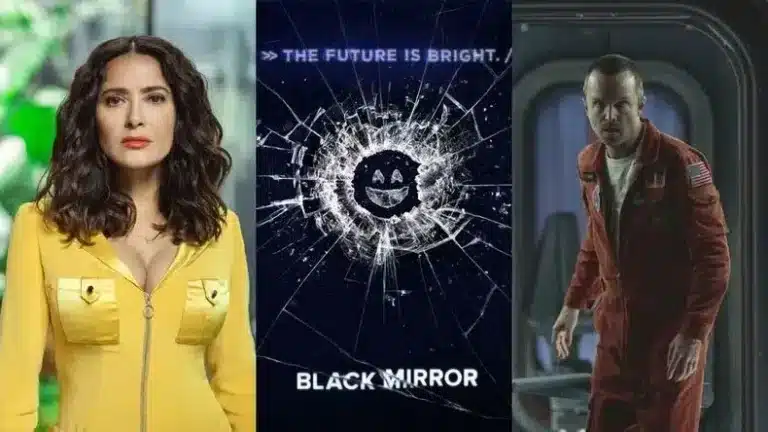
Between dystopian visions and alternate realities, the popular series Black Mirror is set to reveal new horizons in its seventh season.
In a world where technology and humanity intersect in unexpected ways, Black Mirror returns to challenge our perceptions. After a four-year hiatus, the science fiction series that has been praised by both critics and audiences has announced its seventh season.
The return of the dystopian vision
In the current series of panoramas, few have managed to capture the essence of our time like Black Mirror. Before and after the return, the series broke records on Netflix, placing itself in the top 10 of 92 countries and staying on the platform as the top series in English worldwide for four weeks.
Although the cast of season 7 is still a mystery, various reports have it slated for production this year. Charlie Brooker is expected to return as executive producers along with Annabelle Jones and Jessica Rhodes. Although plot details and episode count are yet to be announced, the series’ record-breaking promises to offer a fascinating exploration of contemporary issues through a dark and provocative lens.
Legacy of the stars
Season 6, made up of five episodes, featured names like Salma Hayek, Annie Murphy and Aaron Paul, among others. The short season 5 featured stars like Andrew Scott and Miley Cyrus. This lineup of big-name actors suggests that the new season could be full of surprises in its cast.

Black Mirror’s rights were a complex issue affecting the difference between 5 and 6. Brooker and her creative partner Jones have left their production company to join Netflix under a new banner, Broken and Bones, although the rights to the series remain with Endemol Shine, now part of the Banijay Group.
Sailing in uncharted waters
At the heart of Black Mirror is a relentless exploration of how technology shapes our reality. Since its inception, the series has excelled at examining current affairs through a futuristic and often disturbing lens. Each episode works as a stand-alone piece, allowing creators to tackle a wide variety of situations and moral dilemmas. This unique structure has been a successful formula for the series, attracting a diverse and critically engaged audience.
In retrospect, it’s impossible not to compare Black Mirror to other works of science fiction that have left their mark on popular culture. Series like The Twilight Zone and films like ‘Blade Runner’ have explored similar concepts, but Black Mirror differs by focusing on the emotional and social consequences of technology in everyday life. As the series evolves, it continues to challenge the boundaries of our technological understanding, establishing itself as a modern benchmark in the science fiction genre.
These paragraphs add context and depth to the text, focusing on the thematic evolution of Black Mirror and comparisons with other popular works, without exceeding the established keyword density.

Dystopian prophecies and current realities
The series has been recognized for its ability to predict the future in often dark ways. The recent period has revealed growing concerns about artificial intelligence and its impact on society. Brooker, speaking at an event in London in support of the writers’ strike, expressed his concerns about AI and its use in content creation.
In short, black mirror not only entertains but also inspires reflection. As we enter the age of artificial intelligence and augmented reality, the series positions itself as a mirror of our deepest concerns, which promises to be a lot to talk about in Season 7.